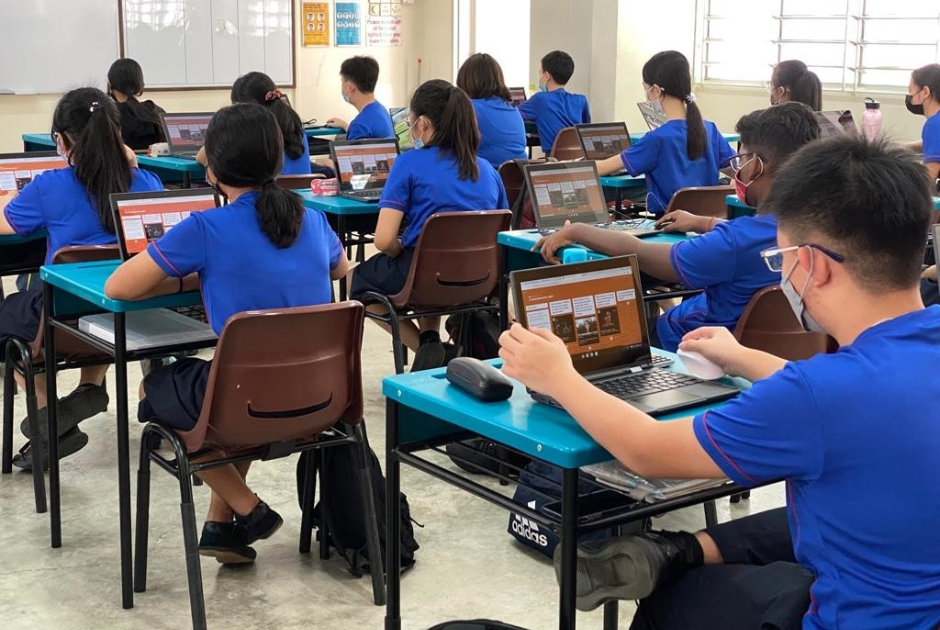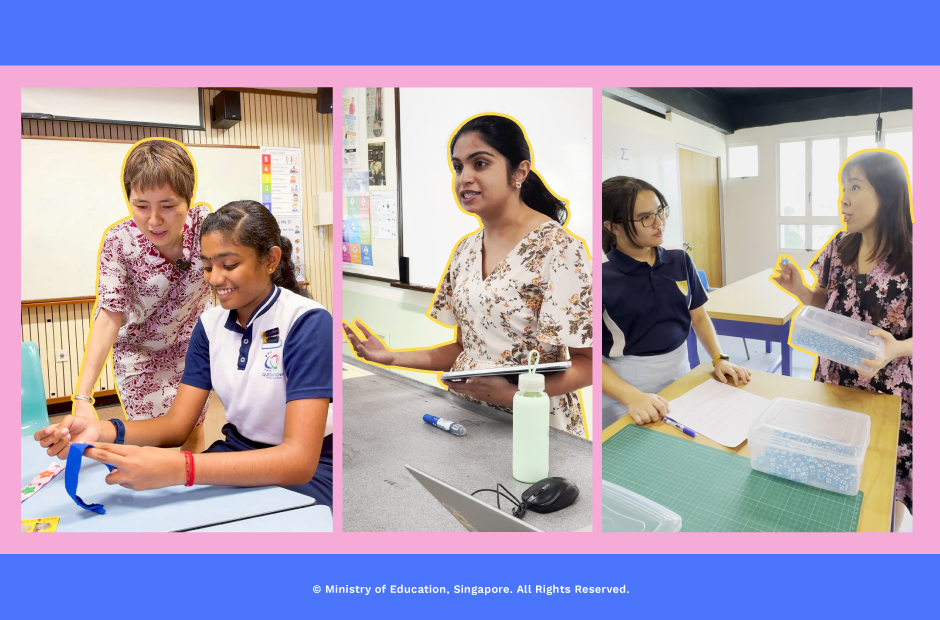Some of the texts are provocative — “I scared if I say the wrong things then your parents see”, or “Wish I could hug you to sleep…” – which sets off more chatter. Serangoon Secondary School form teacher Michael Francis Chow waits for the giggles and murmurs to die down before asking, his voice without judgement:
“What do you think could be the consequences of such texting?” One student suggests, “They could become friends with benefits!” Thanks to the Internet, the students, 13 and 14 years old, know more than we think, and are exposed to far more than the generations of teens before them.
It is shifts like this that prompted a review of the Character and Citizenship Education (CCE) curriculum which started a few years ago, leading up to a major update to the secondary school syllabus this year. Updates to the primary school syllabus will follow. Serangoon Secondary’s Head of Department for CCE, Mrs Faith Wong, points out that some topics in CCE have been refreshed across levels to ensure that learning is more relevant to students.
Mr Chow adds that with the new syllabus, there is a greater emphasis on contemporary issues pertaining to cyber wellness, mental health, race and other areas of concern to students. “Some of the students bring big questions to class,” he says, “on things like gun violence and mass shootings in the United States.”
There are enhancements not just to content but also the way such lessons are taught. Teachers encourage the students to have conversations, share their perspectives and listen to one another’s opinion, and collectively construct, with the teacher’s guidance, values-based decisions on issues. The thinking process to help students discern and manage differences in a respectful manner so as to arrive at an answer is emphasised.
They are also equipped with skills to elicit and facilitate discussions among the teens. For instance, instead of giving “model answers”, Michael flashes this statement on the projection screen: “I have / had concerns about who my friends are talking to online.” He then asks his students to move to different parts of the room based on their own responses to it: yes, no, or maybe. Chairs drag and feet shuffle.
One would think that the class, understanding what the lesson is about, would all cluster with “yes”, but they split evenly, and Michael goes around welcoming responses from each group on why they feel the way they do.
Welcome to your Specialised CCE teacher
Mr Chow is one of a new crop of Specialised CCE Teachers, who undergo training to facilitate contemporary-issue discussions with students during CCE lessons. To do this, Mr Chow has been able to tap on the lessons and resources provided by MOE’s Student Development Curriculum Division, as well as sign up for HQ-organised webinars that provide professional learning opportunities to CCE educators.
Mr Chow has great rapport with his Secondary 2 students, and it shows. The Humanities teacher, who has taught CCE as a form teacher for several years, has no problem broaching the trickier topics in the new syllabus.
At today’s lesson on online safety, for example, he talks about people who take on fake identities on social media with the aim of deceiving others. The discussions are lively and robust; a student shares how he likely evaded a scam when he received a message from a stranger who used the profile photo of a Korean girl and it turned out to be a fake ID, and Mr Chow jovially name-checks the students who are more likely to be suspicious of strange texts than others.
When they discuss how some people request to exchange explicit photographs, the class talks through what the appropriate responses would be, to which Mr Chow offers tips to guide them through their decision-making, from being alert even with people they have interacted for some time with, to not hesitating to approach a trusted adult for advice when necessary.
Ultimately, his message was that they needed to be mindful of who they meet online, and to keep the safety of self and others in mind at all times.
One student quips: “I can use his picture to blackmail him back!” But Mr Chow is quick to correct this, to laughter around the room, “How do you know it’s his?” This could have been a morning of squirmy topics for teens to discuss around adults, but not at this CCE class nor for Mr Chow, who takes it all in his stride.





.jpg)
